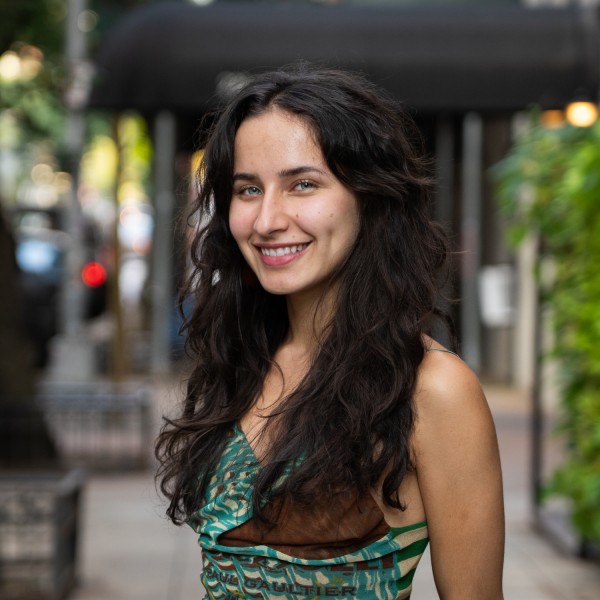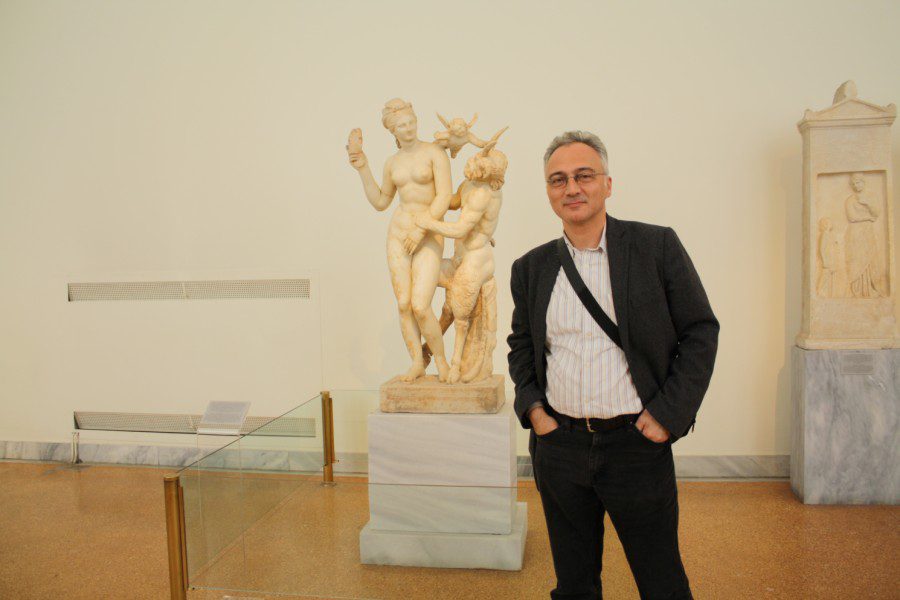Yunus Tuncel: Turkish leftist rebel turned NYU philosophy professor
Recruited, arrested, detained — all before his senior year of high school.
In his boarding school bathroom, 17-year-old Yunus Tuncel heard, “The air is as heavy as lead / I say to him / Let me be ashes / Like Kerem / Burning. / If I don’t burn / if you don’t burn / How will darkness / come to light?”
These words were originally written by communist poet Nâzım Hikmet in his poem “Kerem Gibi.” In Tuncel’s boarding school bathroom, however, the words were spoken by student rebels trying to recruit students to join the radical leftist Turkish uprising of the 1970s.
“At the boarding school, the students were a tight family,” Tuncel said. “Many of them got involved with leftist politics, and they recruited me — I remember exactly how it happened. It was in the men’s room. I went there for a smoke, and apparently it was all full of rebels.”
These students, like many young people around the country, saw economic inequalities and corruption in Turkey. Defining itself as anti-imperialist and anti-bourgeois, the group passed out communist fliers and attacked state institutions, such as the military and police, to gain control and rebuild the government. Tuncel was a junior in high school when he first got involved.
“I already had sympathies, I must say, but if I was left alone I don’t think I would have joined a radical organization,” Tuncel said. “But many of my friends were already in it, so I joined.”
Tuncel joined his high school’s sect of the Revolutionary People’s Liberation Party, a Marxist organization that sought to establish communism within Turkey. On the weekends, the students involved would go into Konya, a city near the boarding school, and meet illegally with other students and workers in the organization. In Konya, however, the rebels stood out like sore thumbs.
“Konya was religious and outrageously conservative,” Tuncel said. “We were Marxist atheists, the oddballs. We were a very tiny minority in the city which was full of religious fanatics — what we called fascists or nationalists. If they saw us, they would attack us.”
The Revolutionary People’s Liberation Party was quite radical, known to frequently kill police officers, blow up police cars and bomb police headquarters. Not tasked with these extremes, Tuncel distributed fliers illegally for the organization and was eventually arrested after a custodian reported him.
The following day, police officers searched the entire school for him and other accomplices. Tuncel, along with two of his friends, were kept in the station for 36 hours and beaten by police officers.
“It was my first exposure to the rough life of being a rebel,” Tuncel said. “When they arrest people they shave their heads, so we came back with no hair.”
His arrests in the middle of his junior year didn’t deter his involvement with the organization. He remained deeply involved and faced law enforcement multiple times before the end of the year. When fights erupted between the leftists and the nationalists outside of Tuncel’s boarding school, police would arrest 10 to 15 students at a time.
“These arrests didn’t discourage me, but some of the organization’s doctrines did,” Tuncel said. “I had discussions with some of the Revolutionary Left’s leaders who said that grassroot change was useless. Instead, they said we must attack state institutions to expose their weaknesses and then we can trigger people for an uprising.”
The summer before 12th grade, Tuncel decided to join a larger movement called Revolutionary Path. It was less radical, but followed many of the same principles as the Revolutionary People’s Liberation Party.
“It was not pro-Soviet or pro-China, which a lot of the leftist organizations in Turkey were at the time,” Tuncel said. “The one I joined was more middle of the road, non-aligned. It believed in guerilla warfare only after they had the people’s support through grassroots change. The first organization just believed hit, run and bomb. I’m glad I left.”
Due to his involvement with the rebels, Tuncel was kicked out of his boarding school just before the 12th grade and enrolled in his hometown high school. As a motivated new member of Revolutionary Path, Tuncel organized an uprising at this school alongside other students. He was soon arrested and placed in jail alongside over 100 common criminals.
“We were again busted, I was arrested, and then I was put in detention for two months before I could appear for my hearing at the court,” Tuncel said. “That was my last time living in Turkey.”
Once he appeared in court, the judge released him and said the trial would go on without him present. The same day, he fled to Cyprus.
“That was the end of my rebellious adventure. I lived in Cyprus for one year and then I left and came to the United States,” he said. “It was a long odyssey, a long journey.”
Once in New York, away from the heat of action back home, Tuncel began to reflect on his beliefs.
“I had lots of questions about the things we did, and the violence — even Marxism itself,” Tuncel said. “I eventually lost faith in that, and gave myself to philosophy.”
Tuncel attended university and was introduced to classic literature and philosophy. He was gripped by the readings of Nietzsche, and studied those readings while pursuing his Ph.D. He said he has adopted Nietzsche’s belief on perspectivism, carrying it with him throughout his life.
“There is no one absolute truth,” Tuncel said. “This absolute truth idea has destroyed humanity through fanaticism and extremism. Learning how to be active rather than reactive helped me undo my own radicalism.”
In retrospect, Tuncel said he believes that human beings should cultivate themselves first before getting involved in anything that is collective or political.
“They should study and be introspective about the human condition, understand the roots of violence and destructive behavior and learn how to channel this violence into something that is meaningful rather than destroy lives,” he said. “As a rebel, we did not do that. We were young and impulsive — so hot-blooded. We were so intolerant, even toward other leftist organizations.”
Although Tuncel still reads and studies Marx, he no longer prescribes to Marxist beliefs.
“We cannot get rid of major human problems with a bloody revolution,” he said. “We do have social problems but you cannot get rid of these in a year, two years or even a decade. These issues are rooted in human civilization.”
Tuncel is currently teaching a Global Works and Societies: Modernity class in NYU’s Liberal Studies program, where he has worked for over 20 years. He is on the board of directors of the Nietzsche Circle, a nonprofit philosophy group that hosts events. He is also the founder and director of Philomobile and a part of the Post Humans Group.
“Give yourself to cultivation,” Tuncel said. “Cultivate a culture of reading, use all the resources that are available, and then ultimately do the things that you like the most, and care for others. Unfortunately, reading culture is eroding because of social media. Be a rebel and resist this. There is lots of wisdom in the great works.”
Contact Clara Scholl at [email protected].

Clara Scholl is a Gallatin junior studying philosophy, politics and economics. She’s from New York City and hosts a radio show on the Riot Grrrl movement....
























































































































































